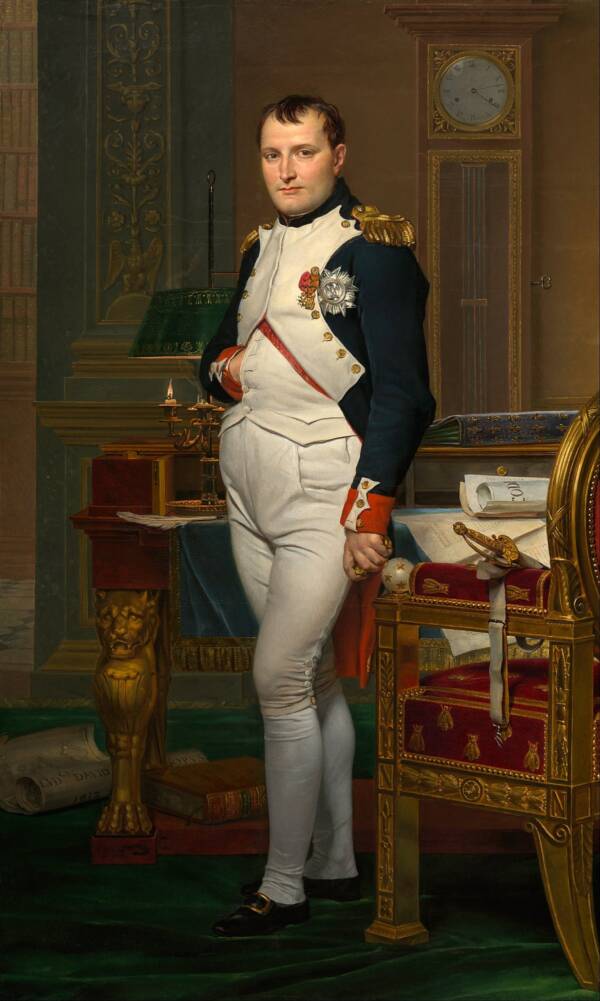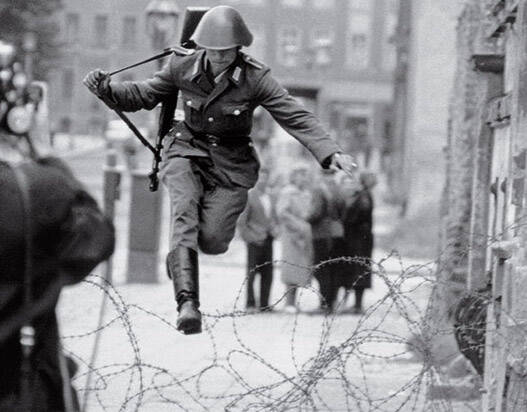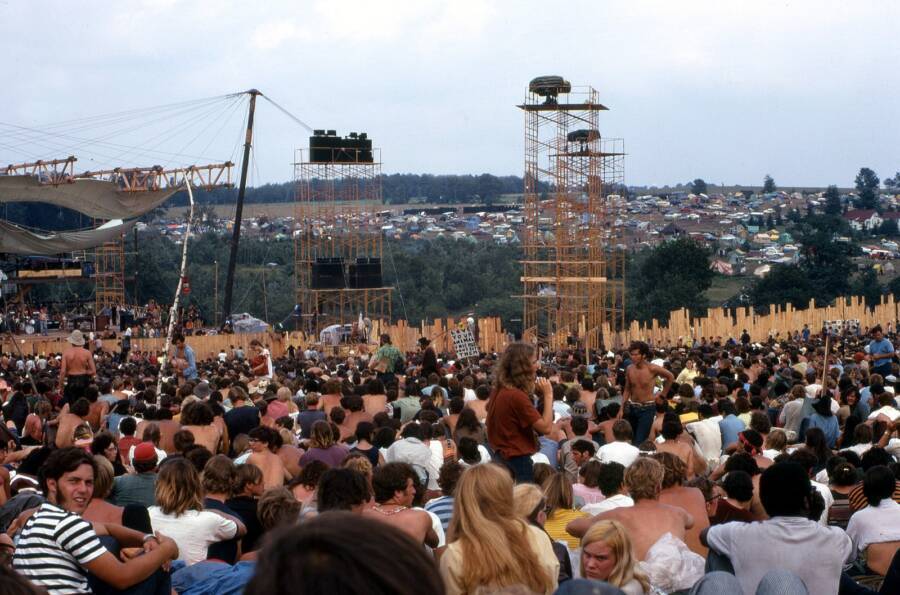What happened on this day in history: India gains its independence from the United Kingdom, the first day of the Woodstock music festival begins, and more events from August 15th.
1769: Napoleon Is Born

Wikimedia CommonsA portrait of Napoleon Bonaparte by Jacques-Louis David. 1812.
French military and political leader Napoleon Bonaparte is born on the island of Corsica. Napoleon would be crowned Emperor of the French in 1804, and his tumultuous reign was marked by a series of wars and conquests that ensnared most of Europe. As many as 6 million people lay dead by the conclusion of the Napoleonic Wars. In the end, he was forced out of power in 1814 and exiled to the island of Saint Helena, where Napoleon ultimately died in 1821.
1914: The Opening Of The Panama Canal
After 10 years of construction, the Panama Canal opens to boat traffic. The canal made it easier than ever before for ships to travel from the Atlantic Ocean to the Pacific Ocean, as they no longer had to navigate around South America. The French initially attempted to build the canal starting in 1881, but they were forced to stop due to engineering problems and a high mortality rate among workers. The United States took over in 1904, completing the 51-mile-long canal.
1947: India Gains Independence
The Indian Independence Bill takes effect, creating the independent countries of India and Pakistan and bringing an end to British rule in the region. The British had controlled India since 1757, but after World War II, Mahatma Gandhi and other leaders organized the “Quit India” campaign, which led to their arrest by British authorities. Though Britain did eventually grant India’s independence, it led to a period of religious turmoil between Muslims and Hindus. This strife would soon inspire one extremist to assassinate Gandhi within months of India winning its independence.
1961: Konrad Schumann Leaps Into Freedom

Library of CongressTaken by Peter Leibing on August 15, 1961, Konrad Schumann abandons his post guarding the new Berlin Wall, defecting to West Germany.
As East Germany begins to construct the Berlin Wall, guards are sent to watch over the temporary line of barbed wire separating the east and the west. One East German guard, Konrad Schumann, takes advantage of the chaos of West German protestors and jumps over the barbed wire into the west side of Berlin. His public defection to West Germany was captured in a photograph by Peter Leibing, as well as on 16 mm film by Dieter Hoffmann. The photo, Leap Into Freedom, became one of the most iconic photos of the Cold War era.
1969: Woodstock Begins

Wikimedia CommonsA small portion of the crowd at Woodstock, which ultimately welcomed more than eight times the amount of attendees that they had planned for.
The Woodstock Music and Art Fair gets underway in a field in the small town of Bethel, New York. What began as “three days of peace and music” for an expected 50,000 concertgoers soon exploded into a crowd of more than 400,000 fans clamoring to see legendary artists like Janis Joplin, Jimi Hendrix, and the Grateful Dead. To this day, Woodstock is regarded as the defining event of the counterculture generation and a pivotal moment in music history.



